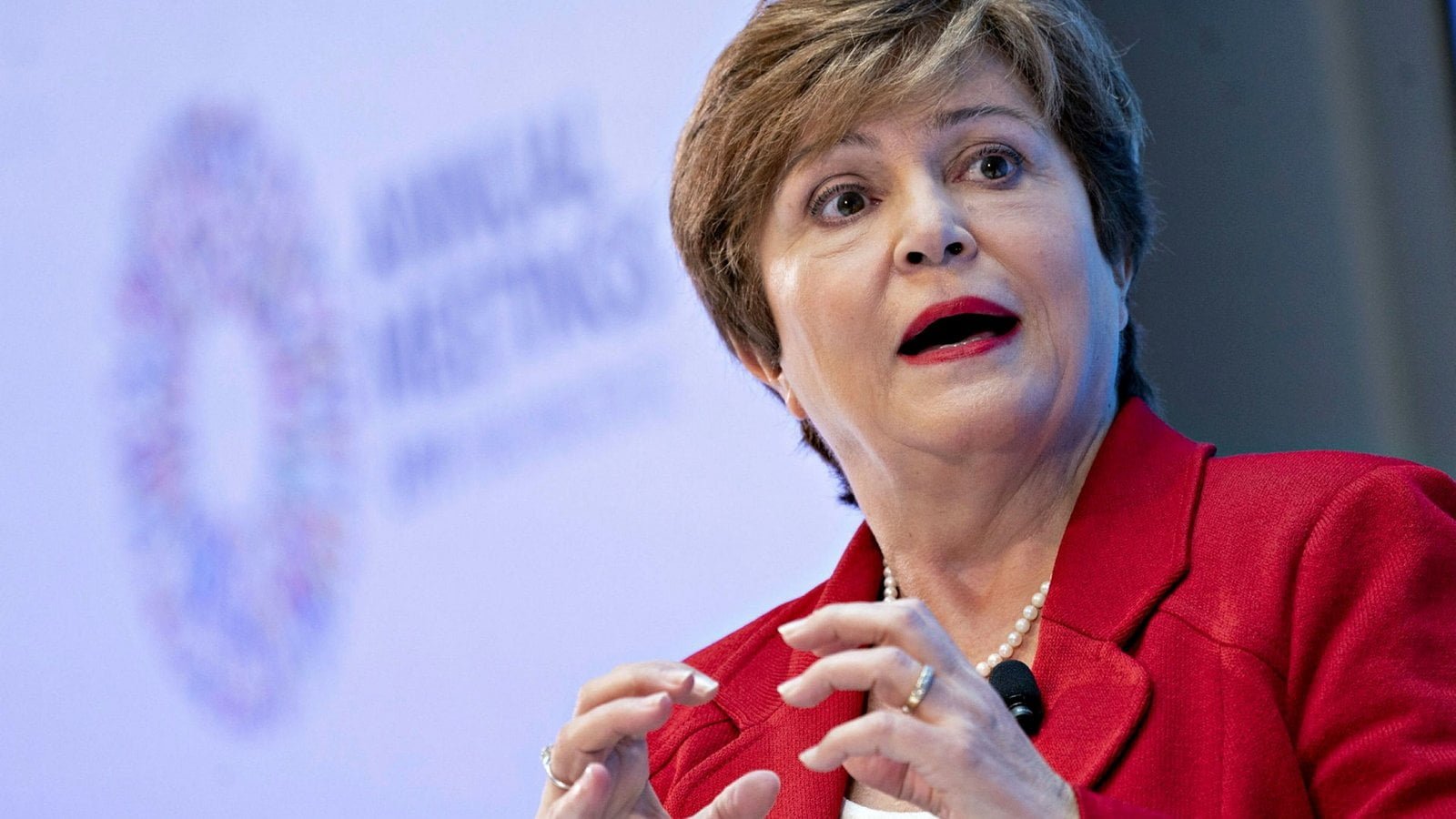IMF Chief Warns Global Financial Stability at Risk From Banking Turmoil – The head of the International Monetary Fund has warned that the global economy faces risks to its financial stability because of the turbulence in the banking sector. Kristalina Georgieva stated that the increasing interest rates have resulted in mounting pressure on debts, which has led to economic “stresses” in major economies, including among lenders.
According to Georgieva, the growth of the global economy will be stifled due to rising borrowing costs, the ongoing conflict in Ukraine, and the lasting effects of the Covid-19 pandemic, resulting in a projected expansion of just 3% this year. She joined a growing number of economic leaders in sounding the alarm about the increased risks to financial stability, which have been exacerbated by the recent collapse of Silicon Valley Bank and the Swiss-government brokered rescue of Credit Suisse by UBS.
People Also Read: Treasury Secretary Yellen Holds Unscheduled Meeting With Top Financial Regulators
Investors will be watching shares in Deutsche Bank when European markets reopen on Monday after they led the sell-off in banking stocks on Friday. “At a time of higher debt levels, the rapid transition from a prolonged period of low interest rates to much higher rates – necessary to fight inflation – inevitably generates stresses and vulnerabilities, as evidenced by recent developments in the banking sector in some advanced economies,” Georgieva said at a conference in Beijing.
During the same period, the European Central Bank (ECB) warned that the recent turbulence in the banking industry would have tangible consequences on business and economic expansion. In an interview with Business Post, the ECB’s vice-president, Luis de Guindos, expressed concerns that difficulties within the banking sector could lead to decreased growth and hinder inflation in the European Union.
“Our impression is that they will lead to an additional tightening of credit standards in the euro area. And perhaps this will feed through to the economy in terms of lower growth and lower inflation,” he said. The aftermath of Brexit has created a difficult trade-off between low growth and high inflation in the United Kingdom, posing a dilemma for central bankers considering interest rate hikes.
The head of the UK’s public spending watchdog emphasized the detrimental effects of leaving the EU on the country’s economy, stating that it would leave deeper economic scars than even those caused by the pandemic. Guindos said that as economic stress increased in the UK, EU and the US, so-called shadow banks, a term for non-bank financial institutions, could further expose cracks in the financial system.
These non-banks, which are outside the supervision powers of central banks such as the ECB, had taken “a lot of risks during the times of very low-interest rates” and all while “growing as a share of the financial system in Europe,” Guindos continued. Regulators in Switzerland continued to grapple with the fallout from the collapse of Credit Suisse.
People Also Read: Argentine Tax Authority AFIP Detects Irregularities in 184 Digital Wallet Tax Statements
Public pressure has mounted on regulators after a vast package of support for the bank before its emergency merger with fellow Swiss bank UBS. The controversies over the bailout have added to echoes of the global financial crisis caused by the recent toppling of major financial institutions in the US and Switzerland.
The Swiss financial regulator said it was “still open” to taking disciplinary action against managers at Credit Suisse. However, it was a lower priority than “preserving financial stability” by overseeing the marriage between Switzerland’s second largest lender and UBS, said Finma’s head, Prof Marlene Amstad.




